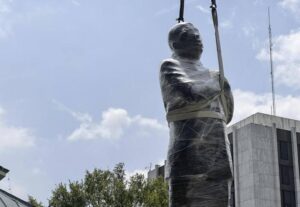Throughout history, African Americans have stood in solidarity with their brothers and sisters in Africa, advocating for justice, equality, and liberation. From civil rights leaders to humanitarian activists, these trailblazing individuals have made significant contributions to the fight against inequality on the African continent. This article celebrates the legacies of five African American activists who have left an indelible mark in the struggle for justice and empowerment in Africa.
W.E.B. Du Bois:

W.E.B. Du Bois, a pioneering scholar and civil rights leader, was also a staunch advocate for pan-Africanism and African liberation. In 1945, Du Bois played a pivotal role in organizing the Fifth Pan-African Congress in Manchester, England, where he called for an end to colonialism and imperialism in Africa. His impassioned advocacy laid the groundwork for future pan-African movements and inspired generations of African leaders to fight for independence and self-determination.
Fannie Lou Hamer:

Fannie Lou Hamer, a fearless civil rights activist, extended her activism beyond the borders of the United States to support the struggle against apartheid in South Africa. As a co-founder of the Mississippi Freedom Democratic Party (MFDP), Hamer challenged racial segregation and discrimination in the American South. In solidarity with the anti-apartheid movement, she traveled to Africa to meet with leaders of the African National Congress (ANC) and lend her voice to the fight against apartheid. Hamer’s unwavering commitment to justice resonated across continents and inspired solidarity movements worldwide.
Harry Belafonte:
Harry Belafonte, renowned singer and social activist, used his platform to advocate for human rights and social justice in Africa. In the 1960s, Belafonte was a vocal critic of apartheid in South Africa and mobilized support for the anti-colonial struggles sweeping across the continent. He organized benefit concerts and fundraisers to support African liberation movements and lobbied the U.S. government to end its support for apartheid regimes. Belafonte’s tireless activism helped raise awareness about the injustices faced by African peoples and contributed to the global movement for decolonization and freedom.
Also, read: Twin Sisters Reclaim Family Heritage: Acquire Former Plantation Where Ancestors Were Enslaved
Maya Angelou:
Maya Angelou, acclaimed poet and civil rights activist, lent her voice to the struggle against apartheid and oppression in Africa. In the 1970s and 1980s, Angelou used her poetry and writing to raise awareness about the human cost of apartheid and the importance of international solidarity. She traveled to Africa and met with leaders of the liberation movements, offering her support and solidarity in their fight for freedom. Angelou’s powerful words and unwavering commitment to justice continue to inspire activists around the world to confront injustice and inequality.
Malcolm X:
Malcolm X, a towering figure in the civil rights movement, also championed the cause of African liberation and self-determination. In the 1960s, Malcolm X traveled to Africa, where he forged connections with leaders of newly independent nations and advocated for unity and solidarity among African peoples. He condemned colonialism and imperialism as tools of oppression and called for African Americans to support the struggle for liberation on the continent. Malcolm X’s bold vision of pan-African solidarity continues to resonate with activists working for justice and equality in Africa and beyond.
Conclusion:
The legacies of W.E.B. Du Bois, Fannie Lou Hamer, Harry Belafonte, Maya Angelou, and Malcolm X remind us of the enduring spirit of solidarity and resilience in the fight against inequality in Africa. Through their activism, advocacy, and leadership, these trailblazing individuals have inspired generations of activists to stand up against oppression and work towards a more just and equitable world. Their contributions to the struggle for justice in Africa serve as a powerful reminder of the importance of international solidarity in the fight for liberation and empowerment.




